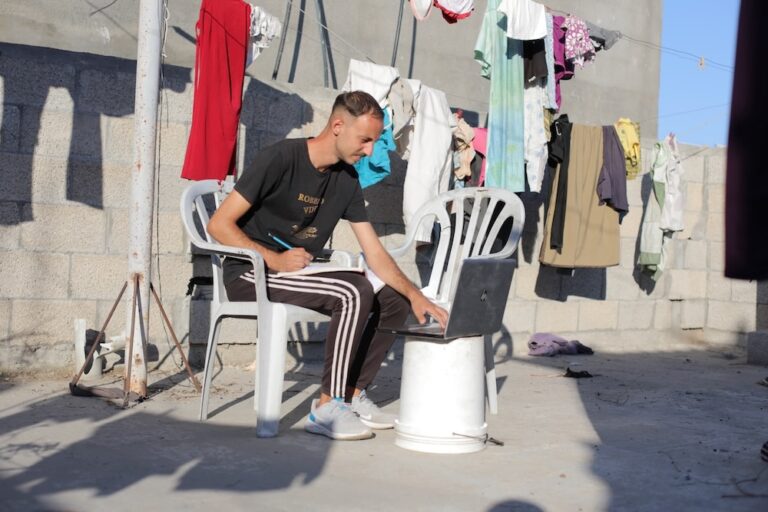The month-long hunger strike by more than 1,500 Palestinian prisoners in protest at their conditions of detention highlights the need to end the practice of administrative detention, PEN International said. The prisoners include writers and journalists, including Muhammad al-Qiq.
This statement was originally published on pen-international.org on 19 May 2017.
The month-long hunger strike by more than 1,500 Palestinian prisoners in protest at their conditions of detention highlights the need to end the practice of administrative detention, PEN International said today. The prisoners include writers and journalists, including Muhammad al-Qiq who was arrested on 15 January 2017 at a military checkpoint near the West Bank city of Ramallah and is being held under administrative detention*. PEN International calls on the Israeli authorities to end the practice of administrative detention immediately, including detention of journalists and other writers, and to ensure the full respect of prisoners’ rights in accordance with international human rights standards.
“Prisoners resort to hunger strike as the means to challenge a government when it shows no signs of flexibility in considering prisoners’ legitimate demands. By refusing to accede to the demands of the writers, journalists, and others, it infringes their human rights. Israel must adhere to international standards. Not doing so is callous, and now runs the risk of harming the health of the individuals undertaking the protests,” said Salil Tripathi, Chair of PEN International’s Writers in Prison Committee.
Al-Qiq has been detained repeatedly as part of the Israeli government’s practice of administrative detention and has previously gone on hunger strike in protest. In 2016 he was held once again and after going on hunger strike Israel’s Supreme Court “suspended” his administrative detention noting in its order that “the patient faces grave danger and is in a state of high risk of sudden death”, he was consequently released on 19 May 2016.
The prisoners, who have been on hunger strike since 17 April 2017, are calling for an end to the practice of solitary confinement and administrative detention, as well as better access to medical care and family visits, and to be allowed to enrol in university courses to continue their education.
PEN International considers the use of administrative detention to violate Israeli’s obligation to respect the right to a fair trial, as guaranteed by Article 9 of the International Covenant on Civil and Political Rights, to which Israel is a state party. It calls for the release of all writers held under administrative detention orders, unless they are to be charged with a recognisably criminal offence and tried promptly and fairly.
“Arbitrary detention and denial of the due process of law are often used by governments to prevent the emergence of any form of opposition. They stand in the way of freedom of expression, without which the critical spirit necessary for the development of any form of dialogue cannot emerge and inevitably risk innocent people being detained illegally. Such practices by the state of Israel violate fundamental human rights and cannot be tolerated,” said Marjan Strojan, Chair of PEN’s Writers for Peace Committee.
*Administrative detention is a form of detention without charge or trial imposed for periods of up to six months, renewable an infinite number of times.



